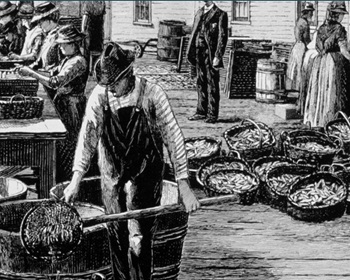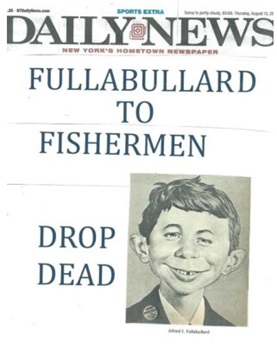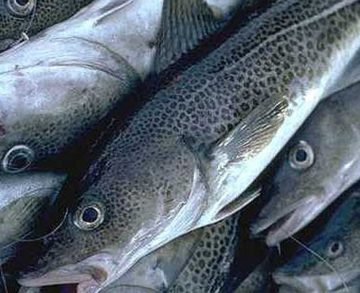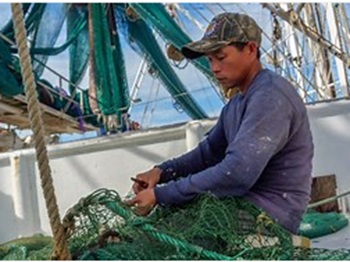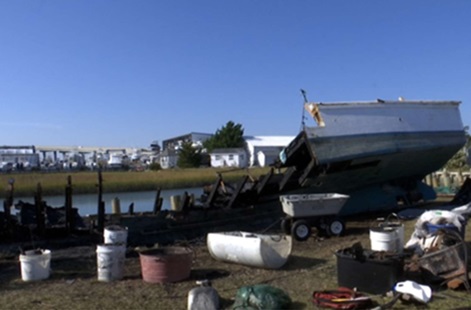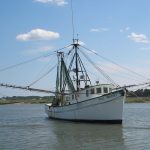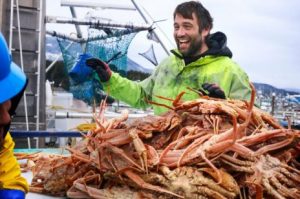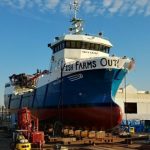Category Archives: Mid Atlantic
Hyde-Smith, Cotton & Scott Introduce Bill to Ban Chinese Seafood Imports
 WASHINGTON, D.C. – U.S. Senator Cindy Hyde-Smith (R-Miss.) today joined U.S. Senators Tom Cotton (R-Ark.) and Rick Scott (R-Fla.) in introducing legislation to ban U.S. imports of seafood and aquaculture products from China. The Ban China’s Forbidden Operations in the Oceanic Domain (Ban C-FOOD) Act would also sanction companies that import Chinese seafood and place tariffs on countries that facilitate the shipment of the seafood. “It’s past time we hold China accountable for its persistent violation of sovereign waters and its shameless use of slave labor to dominate the aquaculture market with unsafe, chemical-ridden products. more, >>click to read<< 09:01
WASHINGTON, D.C. – U.S. Senator Cindy Hyde-Smith (R-Miss.) today joined U.S. Senators Tom Cotton (R-Ark.) and Rick Scott (R-Fla.) in introducing legislation to ban U.S. imports of seafood and aquaculture products from China. The Ban China’s Forbidden Operations in the Oceanic Domain (Ban C-FOOD) Act would also sanction companies that import Chinese seafood and place tariffs on countries that facilitate the shipment of the seafood. “It’s past time we hold China accountable for its persistent violation of sovereign waters and its shameless use of slave labor to dominate the aquaculture market with unsafe, chemical-ridden products. more, >>click to read<< 09:01
A group of commercial fishermen have ended up before the Supreme Court
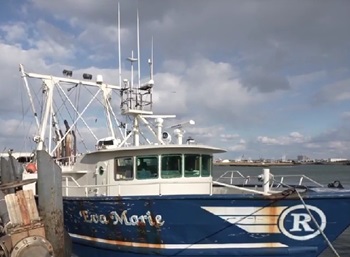 An unforgiving southeast wind cut across Cape May, New Jersey, on a recent Tuesday morning; the 50-mile-per-hour gusts were so strong they created white caps on a section of the bay here that is typically calm. There would be no fishing for Bill Bright and his crew. “We don’t have crop insurance. If the fish don’t show up, there’s no bailout,” the 64-year-old said, standing on the deck of the Eva Marie, an 88-foot-long fishing vessel used to catch herring. As a lifelong fisherman, Bright is used to slow days. But a recent shift in tidal fortunes here has nothing to do with fish and everything to do with the federal government. “What’s at stake for us is our future,” Bright said. For years, fishermen like Bill Bright and his colleague Wayne Reichle have been required to take federal observers on their boats when they set out into the North Atlantic in search of herring. Video , >>click to read<< 19:06
An unforgiving southeast wind cut across Cape May, New Jersey, on a recent Tuesday morning; the 50-mile-per-hour gusts were so strong they created white caps on a section of the bay here that is typically calm. There would be no fishing for Bill Bright and his crew. “We don’t have crop insurance. If the fish don’t show up, there’s no bailout,” the 64-year-old said, standing on the deck of the Eva Marie, an 88-foot-long fishing vessel used to catch herring. As a lifelong fisherman, Bright is used to slow days. But a recent shift in tidal fortunes here has nothing to do with fish and everything to do with the federal government. “What’s at stake for us is our future,” Bright said. For years, fishermen like Bill Bright and his colleague Wayne Reichle have been required to take federal observers on their boats when they set out into the North Atlantic in search of herring. Video , >>click to read<< 19:06
Athearn Marine Agency Boat of the Week: 92′ Rodriguez Scalloper/Shrimper
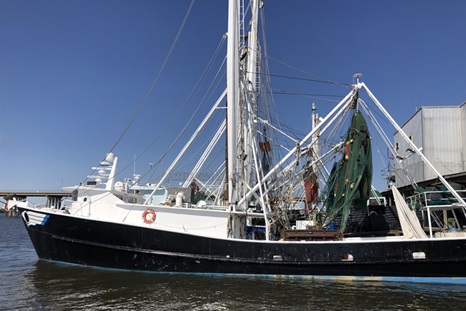 To review specifications, information, 35 photos’, and a video, >click here<, To see all the boats in this series, >click here< 10:50
To review specifications, information, 35 photos’, and a video, >click here<, To see all the boats in this series, >click here< 10:50
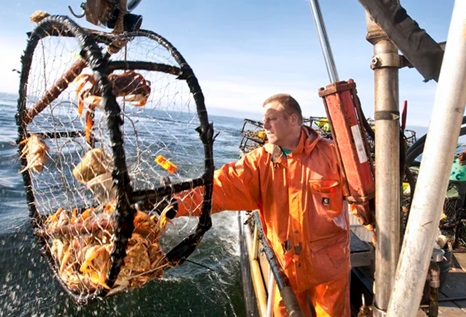
What makes Dungeness Crab Unique
Named after the town of Dungeness, Washington where people first began fishing for these crustaceans in the 1800s, Dungeness crab meat is prized by chefs and seafood connoisseurs alike for its subtle sweetness, and flaky, delicate texture. It’s easy to get lost in the moment when you’re biting into a chunk of delectable Dungeness crab meat. Still, it’s worth pausing to express gratitude toward the crab fishermen (and women) who caught that meal for you. This article covers a lot about these crabs, and you’ll know about a wide variety of crab from Dungeness to King Crab. Dungeness vs. Snow Crab, vs. Stone Crab, Photos, and more, >>click to read<< 16:50
‘Catalytic.’ How a bipartisan bill could save working waterfronts from Cape Cod to Alaska
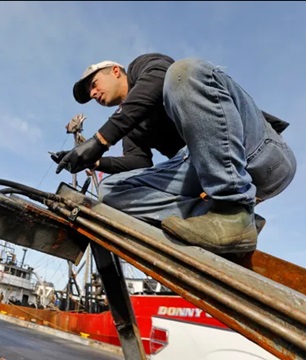
Andrew Spalt climbs the side of the new hydraulic dredge ramp he is installing aboard his boat Miss Emma.
The Working Waterfront Protection Act (S-3180) would establish a grant program that would support working waterfronts in coastal states, including the Great Lakes. The act would provide $20 million annually through fiscal 2028. Commercial fishing cooperatives, working waterfront owners and operators, nonprofit organizations and municipal and state governments would be eligible to apply. Fishing Communities Coalition Coordinator Noah Oppenheim said support is crucial because of pressures facing working waterfront owners and fishing communities nationwide. The coalition represents more than 1,000 independent small boat fishermen and business owners from Maine to Alaska, according to its website. 8 photos, more, >>click to read<< 09:38
Commentary: Offshore wind foes push false info about whale deaths
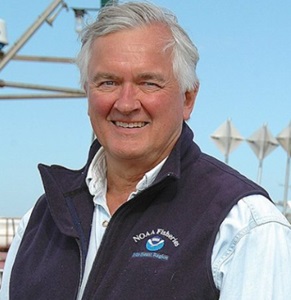 As the former former of New Bedford, regional administrator of NOAA Fisheries, and as president of the Board of the New Bedford Ocean Cluster, I know that commercial fishing and offshore wind can co-exist and thrive. But this requires honest communication about the real conflicts between wind and fishing that need science-based thinking, baseline and ongoing research, respectful listening, and collaborative problem solving. This is made so much more difficult when there is an ongoing disinformation campaign that distorts the facts, presents false information, and operates with motives that can’t be trusted and that are geared towards stopping projects rather than solving problems. more, >>click to read<< 07:14
As the former former of New Bedford, regional administrator of NOAA Fisheries, and as president of the Board of the New Bedford Ocean Cluster, I know that commercial fishing and offshore wind can co-exist and thrive. But this requires honest communication about the real conflicts between wind and fishing that need science-based thinking, baseline and ongoing research, respectful listening, and collaborative problem solving. This is made so much more difficult when there is an ongoing disinformation campaign that distorts the facts, presents false information, and operates with motives that can’t be trusted and that are geared towards stopping projects rather than solving problems. more, >>click to read<< 07:14
The Dead Ocean Effect: NAS study raises concern over offshore wind harming endangered whales
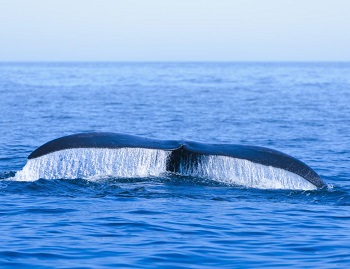 The National Academy of Sciences (NAS) released a lengthy report on what is known as the “dead ocean” threat with a focus on the Nantucket region, specifically what are called the Nantucket shoals. This is a major feeding ground of the desperately endangered North Atlantic Right Whale. It is really a good case study for all major offshore wind installations. The report uncovers something strange but true. The physics is technical, but the basic idea is simple. Wind turbines take a lot of the energy out of the air, creating a lower energy wake behind the wind turbine facility. Lower energy wind causes lower energy waves so there is much less mixing in the ocean surface layer. This depletes the oxygen level in the water, which can reduce the amount of living food sources that whales eat, which can harm the whales on a population level. This is why it is called the dead ocean effect. more, >>click to read<< 09:48
The National Academy of Sciences (NAS) released a lengthy report on what is known as the “dead ocean” threat with a focus on the Nantucket region, specifically what are called the Nantucket shoals. This is a major feeding ground of the desperately endangered North Atlantic Right Whale. It is really a good case study for all major offshore wind installations. The report uncovers something strange but true. The physics is technical, but the basic idea is simple. Wind turbines take a lot of the energy out of the air, creating a lower energy wake behind the wind turbine facility. Lower energy wind causes lower energy waves so there is much less mixing in the ocean surface layer. This depletes the oxygen level in the water, which can reduce the amount of living food sources that whales eat, which can harm the whales on a population level. This is why it is called the dead ocean effect. more, >>click to read<< 09:48

Giving Back: Wenzel uses net gains to help needy
As the son of a carpenter and custom home builder, Brick Wenzel said he hated getting wood splinters in his fingers when he was young. Born and raised in Lavalette, just north of Seaside Heights in Ocean County, he said his fascination with fish began in his early teens. As a young teen, he would collect bait fish and sell them to fishermen around town and party boat fishing captains to earn money, aside from his duties delivering the Ocean County Observer. His lifelong passion for all things fish-related has paid off. In 2018, to give back to the community at large, he founded America’s Gleaned Seafood, a non-profit group that donates leftover fish to area food banks. Offices for America’s Gleaned Seafood are located at the Point Pleasant Seafood Co-Op, which he believes is the oldest farmers’ cooperative in the United States. more, >>click to read<< 08:01
Environmentalists face off against environmentalists over offshore wind projects
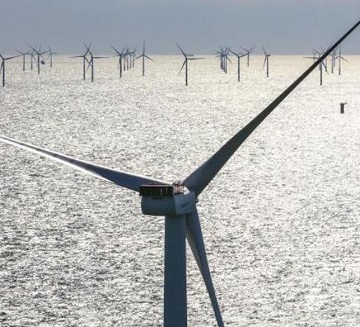 The Energy Department estimates offshore wind turbines could produce as much as 20% of regional power needs along the densely populated Eastern Seaboard from Florida to Maine by 2050. To reach that goal, the Biden administration had hoped to green-light 30 gigawatts from utility-scale offshore wind farms by 2030—enough to power nine million homes. That now seems wildly ambitious, as billions of dollars in projects have been canceled amid staggering cost overruns, soaring interest rates and supply-chain delays. Added to these economic woes are persistent environmental concerns, as attested to by some recent federal lawsuits. In September, for example, Cape May County, N.J., and a coalition of regional environmental, fisheries and tourism groups sought to stop development of two utility-scale projects off the New Jersey coast. more, >>click to read<< 11:54
The Energy Department estimates offshore wind turbines could produce as much as 20% of regional power needs along the densely populated Eastern Seaboard from Florida to Maine by 2050. To reach that goal, the Biden administration had hoped to green-light 30 gigawatts from utility-scale offshore wind farms by 2030—enough to power nine million homes. That now seems wildly ambitious, as billions of dollars in projects have been canceled amid staggering cost overruns, soaring interest rates and supply-chain delays. Added to these economic woes are persistent environmental concerns, as attested to by some recent federal lawsuits. In September, for example, Cape May County, N.J., and a coalition of regional environmental, fisheries and tourism groups sought to stop development of two utility-scale projects off the New Jersey coast. more, >>click to read<< 11:54
Athearn Marine Agency Boat of the Week: 56′ DMR Scalloper/Dragger, 500HP, John Deere
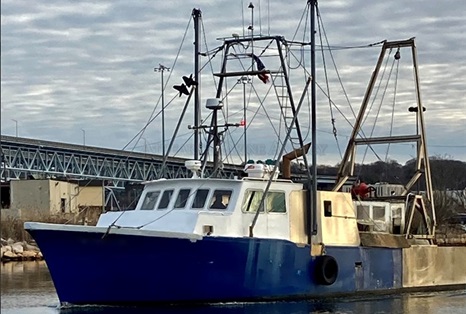 To review specifications, information, and 37 photos’, >click here<, To see all the boats in this series, >click here< 10:50
To review specifications, information, and 37 photos’, >click here<, To see all the boats in this series, >click here< 10:50
Nantucket’s Rich Are Losing the Battle to Keep Wind Power Out of Their Backyards
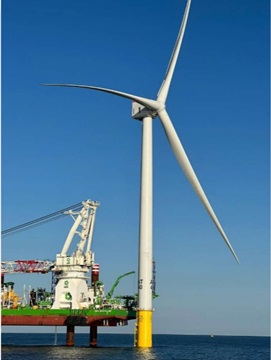 A newly erected wind turbine off the coast of the pristine sandy beaches of Nantucket rises about 850 feet from the ocean surface, higher than any building in Boston, spinning blades about 350 feet long. It’s a marvel of human ingenuity, a shot at a carbon-free future — and the scourge of wealthy denizens of Nantucket and Martha’s Vineyard. A raft of lawsuits from residents and fishing industry groups have complained about everything from obstructed views to marine life hazards and disruptions to whales. But the energy company Avangrid completed the first of 62 giant wind turbines last month, promising enough juice to power more than 400,000 homes and business in Massachusetts. >>click to read<< 10:51
A newly erected wind turbine off the coast of the pristine sandy beaches of Nantucket rises about 850 feet from the ocean surface, higher than any building in Boston, spinning blades about 350 feet long. It’s a marvel of human ingenuity, a shot at a carbon-free future — and the scourge of wealthy denizens of Nantucket and Martha’s Vineyard. A raft of lawsuits from residents and fishing industry groups have complained about everything from obstructed views to marine life hazards and disruptions to whales. But the energy company Avangrid completed the first of 62 giant wind turbines last month, promising enough juice to power more than 400,000 homes and business in Massachusetts. >>click to read<< 10:51
Newport, Block Island preservation groups sue to stop offshore wind farms
 Filed in the U.S. District Court for the District of Columbia, two separate appeals against the approvals were also filed by the Southeast Lighthouse Foundation, based on Block Island. Both organizations are being represented by Washington D.C.-based law firm Cultural Heritage Partners PLLC. The four filings assert a case of regulatory capture that led the U.S. Department of Interior and Bureau of Ocean Energy Management to “shirking its responsibility to the public and allowing corporate energy developers to set the terms for permitting,” and asks the court to issue a construction injunction and find the developers violated federal laws and regulations governing energy development, including the National Environmental Policy Act and National Historic Preservation Act. >>click to read<< 09:52
Filed in the U.S. District Court for the District of Columbia, two separate appeals against the approvals were also filed by the Southeast Lighthouse Foundation, based on Block Island. Both organizations are being represented by Washington D.C.-based law firm Cultural Heritage Partners PLLC. The four filings assert a case of regulatory capture that led the U.S. Department of Interior and Bureau of Ocean Energy Management to “shirking its responsibility to the public and allowing corporate energy developers to set the terms for permitting,” and asks the court to issue a construction injunction and find the developers violated federal laws and regulations governing energy development, including the National Environmental Policy Act and National Historic Preservation Act. >>click to read<< 09:52
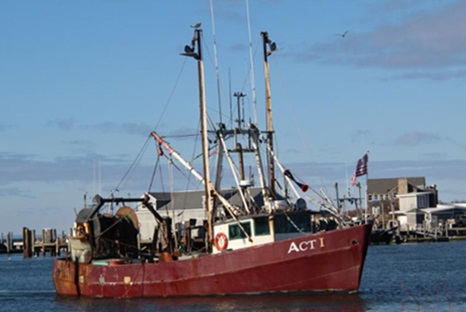
A Sinking Trawler Is Saved
When Capt. Chuck Morici’s boat was sinking 15 miles from Montauk Point on Nov. 15, he did what people do in 2023: He made a short video. Orange haze from a smoke flare he had thrown in the water swirled around the boat. He pointed the camera below deck to show water, rising rapidly. “There she goes. I just want to cry. We’re going down.” Minutes later, after the Coast Guard had arrived, he made a second video. “You might not like the Coast Guard when they measure your fish, but you sure like them when they show up and save your ass,” he said before panning to a Coast Guardsman descending below deck. “I was fishing next to Capt. Dave Aripotch in heavy currents. I told him I was having trouble and asked him to come pick up my crew. I put them in survival suits immediately. Dave backed up, stern to stern, and he took care of my guys.” >>click to read<< 15:21
Fishing industry’s fight against offshore wind farms reaches far and wide
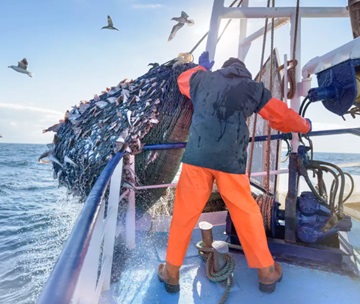 Off the coast of Montauk, New York is some of the most fertile fishing grounds in all of North America. It is an area that has been sustainably fished for over 400 years, feeding countless Americans along the way. It also happens to be an area where energy companies, some foreign-owned, are trying to install offshore wind farms. Political agendas and lobbyist pull strings have put that sustainable fishing at risk. As a result, the Vineyard Wind project has embroiled generational fishermen into a lawsuit, and a battle for their own profession. Roy Maynard of the Texas Public Policy Foundation says there has not even been proper checks and balances. >>click to read<< 07:26
Off the coast of Montauk, New York is some of the most fertile fishing grounds in all of North America. It is an area that has been sustainably fished for over 400 years, feeding countless Americans along the way. It also happens to be an area where energy companies, some foreign-owned, are trying to install offshore wind farms. Political agendas and lobbyist pull strings have put that sustainable fishing at risk. As a result, the Vineyard Wind project has embroiled generational fishermen into a lawsuit, and a battle for their own profession. Roy Maynard of the Texas Public Policy Foundation says there has not even been proper checks and balances. >>click to read<< 07:26
Divers to inspect fishing boat that sank at Jersey Shore during salvage attempt
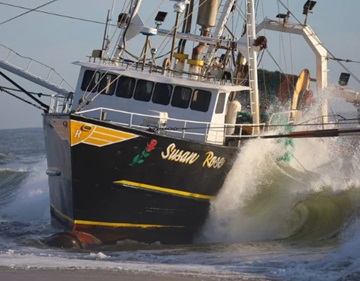 The F/V Susan Rose is “fully submerged” in 49 feet of water a half-mile off Point Pleasant Beach, approximately a half-mile south of the Manasquan Inlet, U.S. Coast Guard Petty Officer Matthew West said. The company in charge of removing the vessel, Northstar Marine Services, is working with the boat’s owners on a new plan to salvage it. “We will be going out to dive on it — to do a dive inspections, take a look at the current state of it,” Northstar Marine Services President Phillip Risko told NJ Advance Media on Monday. “So we’re planning on that in the coming days, but nothing else particular at this point. I’m not sure what day that’s going to be.” Photos, Video, >>click to read<< 10:03
The F/V Susan Rose is “fully submerged” in 49 feet of water a half-mile off Point Pleasant Beach, approximately a half-mile south of the Manasquan Inlet, U.S. Coast Guard Petty Officer Matthew West said. The company in charge of removing the vessel, Northstar Marine Services, is working with the boat’s owners on a new plan to salvage it. “We will be going out to dive on it — to do a dive inspections, take a look at the current state of it,” Northstar Marine Services President Phillip Risko told NJ Advance Media on Monday. “So we’re planning on that in the coming days, but nothing else particular at this point. I’m not sure what day that’s going to be.” Photos, Video, >>click to read<< 10:03
North Carolina Fisheries Association Weekly Update for November 20, 2023
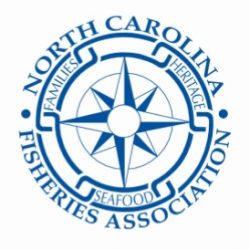 The North Carolina Marine Fisheries Commission (MFC) met last week in Emerald Isle, NC. I am happy to report there was good turnout from fishermen giving comments and talking with commissioners and staff during and after the meeting. As most of you know the striped mullet was the hot item on the agenda. Specifically, looking at reducing striped mullet harvest by setting seasons and trip limits. If you read the Weekly Update last week you know that the Division of Marine Fisheries (DMF) has recommended the maximum harvest reduction percentage of 35.4%. DMF recommends:>>click to read<< 13:45
The North Carolina Marine Fisheries Commission (MFC) met last week in Emerald Isle, NC. I am happy to report there was good turnout from fishermen giving comments and talking with commissioners and staff during and after the meeting. As most of you know the striped mullet was the hot item on the agenda. Specifically, looking at reducing striped mullet harvest by setting seasons and trip limits. If you read the Weekly Update last week you know that the Division of Marine Fisheries (DMF) has recommended the maximum harvest reduction percentage of 35.4%. DMF recommends:>>click to read<< 13:45
‘Catastrophic failure’: Efforts to salvage fishing trawler Susan Rose end with it sinking
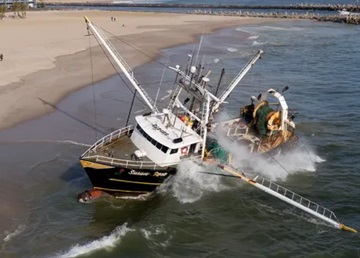 The salvage of the Susan Rose, the fishing boat that ran aground in Point Pleasant Beach, was going as planned early Sunday when water started coursing into the 48-year-old commercial trawler with eight crew members on board, the salvage company owner said. The boat ended up sinking about a half mile offshore during the salvage operation. Northstar Marine Services of Cape May County was handling the salvage operation. Photos, video >>click to read<< 07:07
The salvage of the Susan Rose, the fishing boat that ran aground in Point Pleasant Beach, was going as planned early Sunday when water started coursing into the 48-year-old commercial trawler with eight crew members on board, the salvage company owner said. The boat ended up sinking about a half mile offshore during the salvage operation. Northstar Marine Services of Cape May County was handling the salvage operation. Photos, video >>click to read<< 07:07
F/V Susan Rose: Fishing boat that ran aground off N.J. sinks
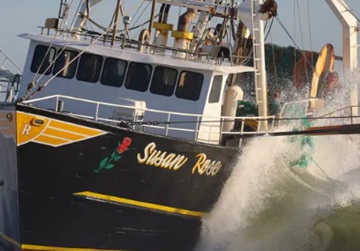 A 77-foot commercial fishing boat that ran aground three blocks from the Manasquan Inlet in Point Pleasant Beach last week sank while it was being towed from the area, a U.S. Coast Guard spokesman said Sunday. The Coast Guard received a report of the boat being beached shortly before 5 a.m. Friday. Crews worked all day Saturday to get the boat afloat. As a salvage company was towing it away, the vessel sank in 48 feet of water about a half mile from Manasquan Inlet around 2 a.m. Sunday, U.S. Coast Guard Petty Officer First Class Matthew West said. >>click to read<< 13:39
A 77-foot commercial fishing boat that ran aground three blocks from the Manasquan Inlet in Point Pleasant Beach last week sank while it was being towed from the area, a U.S. Coast Guard spokesman said Sunday. The Coast Guard received a report of the boat being beached shortly before 5 a.m. Friday. Crews worked all day Saturday to get the boat afloat. As a salvage company was towing it away, the vessel sank in 48 feet of water about a half mile from Manasquan Inlet around 2 a.m. Sunday, U.S. Coast Guard Petty Officer First Class Matthew West said. >>click to read<< 13:39
Lifelong Commercial Fisherman Carlton Maxwell Muse, Sr. of Pamlico, North Carolina has passed away
 Carlton Maxwell Muse Sr. passed peacefully at 92 years old in his home on Sunday, November 12, 2023, while watching the sunrise over Broad Creek. According to his birth certificate, Carlton was debatably born on July 31, 1931, but his mother told him otherwise. Carlton “Mack,” or “Son” as he was referred to by his parents, was as salty as they come. He was a proud U.S. Coast Guard Veteran, serving in both active duty and USCG reserves. He was also a lifelong commercial fisherman, who was once air lifted off the F/V Miss Pamlico when she hit the bottom in Oregon Inlet. Year after year he would trawl the waters from the Mid- Atlantic all the way to Key West, Fla. He loved fishing so much that he would move his family to the Keys once a year, just for shrimp season. Carlton and his family would always find their way back home, to Little Pamlico. When he finally grew tired of the wind in his face, the salt in his hair, and missing Shirley May way too often, he opened C.M. Muse Seafood. >>click to read<< 07:40
Carlton Maxwell Muse Sr. passed peacefully at 92 years old in his home on Sunday, November 12, 2023, while watching the sunrise over Broad Creek. According to his birth certificate, Carlton was debatably born on July 31, 1931, but his mother told him otherwise. Carlton “Mack,” or “Son” as he was referred to by his parents, was as salty as they come. He was a proud U.S. Coast Guard Veteran, serving in both active duty and USCG reserves. He was also a lifelong commercial fisherman, who was once air lifted off the F/V Miss Pamlico when she hit the bottom in Oregon Inlet. Year after year he would trawl the waters from the Mid- Atlantic all the way to Key West, Fla. He loved fishing so much that he would move his family to the Keys once a year, just for shrimp season. Carlton and his family would always find their way back home, to Little Pamlico. When he finally grew tired of the wind in his face, the salt in his hair, and missing Shirley May way too often, he opened C.M. Muse Seafood. >>click to read<< 07:40
Fish house keeps fresh fish on the table
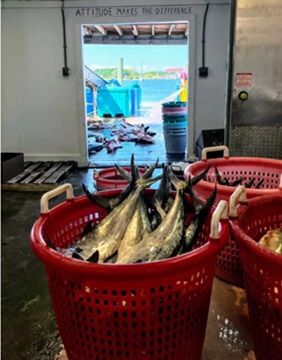 Every day, the Ocracoke Seafood Company sends about 4,500 pounds of locally caught fish off to places beyond. Sometimes Shane Mason gets up at 3 a.m. to drive the refrigerated truck on a four-plus-hour run to drop off the previous day’s catch to Jeffrey’s in Hatteras. Monday, Wednesday and Friday are big market days, he said while icing down fish brought in by one of several local commercial fishermen, packing them into boxes and loading them onto pallets. From Jeffrey’s, the Ocracoke catch goes all over, especially to New York and overseas. Locally, restaurants and individuals can partake in that bounty by purchasing fish and shellfish in the retail area of Ocracoke’s “fish house,” as it is known. This operation is helping to keep the island’s few commercial fishermen working and there’s been a renewed interest by the fishermen and the community to revitalize the business, said Stevie Wilson, vice-president of the board of directors. Photos, >>click to read<< 19:04
Every day, the Ocracoke Seafood Company sends about 4,500 pounds of locally caught fish off to places beyond. Sometimes Shane Mason gets up at 3 a.m. to drive the refrigerated truck on a four-plus-hour run to drop off the previous day’s catch to Jeffrey’s in Hatteras. Monday, Wednesday and Friday are big market days, he said while icing down fish brought in by one of several local commercial fishermen, packing them into boxes and loading them onto pallets. From Jeffrey’s, the Ocracoke catch goes all over, especially to New York and overseas. Locally, restaurants and individuals can partake in that bounty by purchasing fish and shellfish in the retail area of Ocracoke’s “fish house,” as it is known. This operation is helping to keep the island’s few commercial fishermen working and there’s been a renewed interest by the fishermen and the community to revitalize the business, said Stevie Wilson, vice-president of the board of directors. Photos, >>click to read<< 19:04
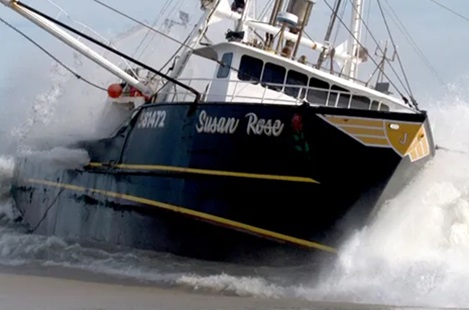
Commercial fishing boat Susan Rose grounded at Point Pleasant Beach – Photos
A commercial fishing boat that beached here early Friday morning drew a crowd of curious onlookers on what was a sun-splashed fall day. The boat is a 98-foot commercial trawler that a witness says was approaching the Manasquan Inlet but instead it came ashore at the north end of Point Pleasant Beach. The boat is named Susan Rose and hails from Port Judith, Rhode Island, according to MarineTraffic.com, which monitors boat traffic, and commercial fishermen from the Point Pleasant Fishermen’s Cooperative Dock. Capt. Jim Lovgren, who sits on the Co-op’s executive board, said the boat is part of The Town Dock fleet in Narragansett and is here in New Jersey fishing for sea bass and fluke, and has been delivering its catch to the co-op dock. The Town Dock was not able to be reached for comment. 8 photos, >>click to read<< 14:34
77-foot fishing boat runs aground on Jersey Shore beach
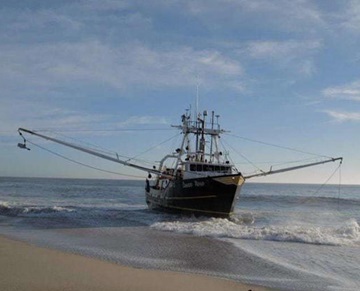 Firefighters and emergency workers rescued three people from a 77-foot fishing boat that ran aground in Point Pleasant Beach early Friday, officials said. A fourth person was already out of the fishing vessel Susan Rose when firefighters and EMS arrived on the beach about three blocks south of the Manasquan Inlet, Point Pleasant Beach Fire Chief Ira Waldman said. The Coast Guard received a report about the beached boat shortly before 5 a.m. and sent a boat to assist, a spokesman said. >>click to read<< 09:09
Firefighters and emergency workers rescued three people from a 77-foot fishing boat that ran aground in Point Pleasant Beach early Friday, officials said. A fourth person was already out of the fishing vessel Susan Rose when firefighters and EMS arrived on the beach about three blocks south of the Manasquan Inlet, Point Pleasant Beach Fire Chief Ira Waldman said. The Coast Guard received a report about the beached boat shortly before 5 a.m. and sent a boat to assist, a spokesman said. >>click to read<< 09:09
Coalition files intent to sue federal agencies to stop whale-killing Virginia wind project
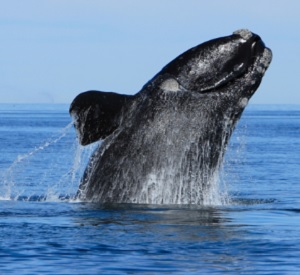 The Committee for a Constructive Tomorrow (CFACT) and The Heartland Institute today announced that they were filing with the Bureau of Ocean Energy Management (BOEM) and the National Marine Fisheries Service (NMFS) a 60 Day Notice of Intent to Sue letter for a violation of the Endangered Species Act. The violation is contained in a defective “biological opinion,” which authorizes the construction of the Virginia Offshore Wind Project (VOW). The 60-day notice is required by the Endangered Species Act (ESA) for parties who wish to commence litigation against BOEM for failure to provide adequate protection of the North Atlantic right whale and other endangered species. The North Atlantic right whale is listed as “critically endangered” by the governments of both the Commonwealth of Virginia and the United States. >>click to read<< 12:23
The Committee for a Constructive Tomorrow (CFACT) and The Heartland Institute today announced that they were filing with the Bureau of Ocean Energy Management (BOEM) and the National Marine Fisheries Service (NMFS) a 60 Day Notice of Intent to Sue letter for a violation of the Endangered Species Act. The violation is contained in a defective “biological opinion,” which authorizes the construction of the Virginia Offshore Wind Project (VOW). The 60-day notice is required by the Endangered Species Act (ESA) for parties who wish to commence litigation against BOEM for failure to provide adequate protection of the North Atlantic right whale and other endangered species. The North Atlantic right whale is listed as “critically endangered” by the governments of both the Commonwealth of Virginia and the United States. >>click to read<< 12:23
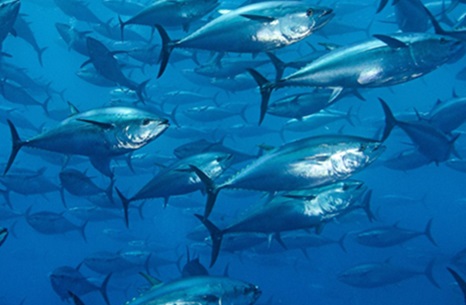
Bluefin Tuna Get It On off North Carolina
In November 1981, a fleet of briefcase-toting lobbyists, scientists, and political negotiators gathered in sunny Tenerife, Spain, to decide the fate of Atlantic bluefin tuna. Representing more than a dozen countries, including Canada, the United States, Spain, and Italy, the besuited men knew crisis loomed. Since the early 1970s, rising global demand for bluefin flesh had spurred fishing fleets—hailing from ports on both sides of the Atlantic Ocean—to kill untold thousands of the wide-ranging predator every year. Under this heavy fishing pressure, primarily driven by the Japanese appetite for sushi-grade tuna, the species careened toward collapse. During the meeting in Tenerife, the American delegation to the International Commission for the Conservation of Atlantic Tunas proposed a disarmingly simple solution: they would draw a line down the middle of the Atlantic Ocean and split the bluefin into two separate stocks. >>click to read<< 08:19
Opening of season proves bay scallops are hard to find
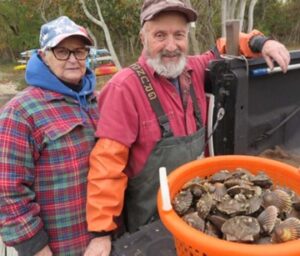 While the rest of us admire fall foliage, North Fork baymen look to nature for signs that predict the health of adult bay scallops. They watch the docks and parking lots to see if they are littered with broken scallop shells dropped and picked over by gulls; a good sign. They scan the beaches after a strong wind to see if scallops have washed up, another good sign. This year, once again, the signs were not encouraging. The bay scallop season, which started Monday in New York and runs through March, looks to be just as bad this year as it has been for the past four, which means the most reliable way to get a bay scallop dinner is to know a fisherman — and the most reliable way for a fisherman to make a living is to fish for something else. >>click to read<< 13:03
While the rest of us admire fall foliage, North Fork baymen look to nature for signs that predict the health of adult bay scallops. They watch the docks and parking lots to see if they are littered with broken scallop shells dropped and picked over by gulls; a good sign. They scan the beaches after a strong wind to see if scallops have washed up, another good sign. This year, once again, the signs were not encouraging. The bay scallop season, which started Monday in New York and runs through March, looks to be just as bad this year as it has been for the past four, which means the most reliable way to get a bay scallop dinner is to know a fisherman — and the most reliable way for a fisherman to make a living is to fish for something else. >>click to read<< 13:03






